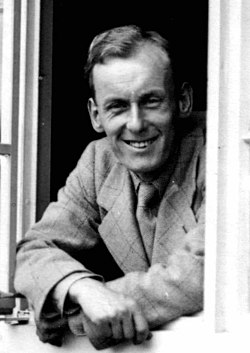H.E. Bates Quote
Miss Parkinson lived alone in a big bay-windowed house of Edwardian brick with a vast garden of decaying fruit trees and untidy hedges of gigantic size. She was great at making elderberry wine and bottling fruit and preserves and lemon curd and drying flowers for winter. She felt, like Halibut, that things were not as they used to be. The synthetic curse of modern times lay thick on everything. There was everywhere a sad drift from Nature.
H.E. Bates
Miss Parkinson lived alone in a big bay-windowed house of Edwardian brick with a vast garden of decaying fruit trees and untidy hedges of gigantic size. She was great at making elderberry wine and bottling fruit and preserves and lemon curd and drying flowers for winter. She felt, like Halibut, that things were not as they used to be. The synthetic curse of modern times lay thick on everything. There was everywhere a sad drift from Nature.
Related Quotes
As I lay there, listening to the soft slap of the sea, and thinking these sad and strange thoughts, more and more and more stars had gathered, obliterating the separateness of the Milky Way and fillin...
Iris Murdoch
Tags:
description, descriptive, galaxy, iris murdoch, magical, milky way, stars, the sea the sea, universe
About H.E. Bates
Herbert Ernest Bates (16 May 1905 – 29 January 1974) was a British writer known for his gritty, realistic short stories (he wrote more than 25 collections) and novels set predominantly in early- to mid-20th century England. His rural upbringing and love of flowers and gardening informed much of his writing. His best-known works include Love for Lydia, Fair Stood the Wind for France, The Darling Buds of May, and My Uncle Silas. Many of his short stories were adapted for British television in the 1970s.
